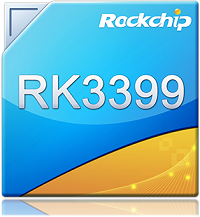Difference between revisions of "ROCKPro64"
| Line 20: | Line 20: | ||
=== [[ROCKPro64_Software_Release|ROCKPro64]] === | === [[ROCKPro64_Software_Release|ROCKPro64]] === | ||
Under [[ROCKPro64_Software_Release|' | Under [[ROCKPro64_Software_Release|'ROCKPro64 Software and OS Image Download Section']] you will find a complete list of currently supported Operating System images that work with the ROCKPro64 as well as other related software. | ||
The list includes OS images and descriptions of: | The list includes OS images and descriptions of: | ||
Revision as of 06:20, 10 May 2018
ROCKPro64
ROCKPro64 ROCKPro64 is the most powerful Single Board Computer released by Pine64. Its powered by a Rockchip RK3399 Hexa-Core (dual ARM Cortex A72 and quad ARM Cortex A53) 64-Bit Processor with MALI T-860 Quad-Core GPU. The ROCKPro64 is equipped with 4GB LPDDR4 system memory and 128Mb SPI boot Flash. There is also an optional eMMC module (up to 128GB) and microSD slot for booting. The board is equipped with a PCIe x4 open ended slot, 1x USB 3.0 type C Host with DP 1.2, 1x USB 3.0 type A Host, 2x USB 2.0 Host, Gigabit Ethernet, PI-2 GPIO Bus, MiPi DSI interface, eDP interface, touch Panel interface, stereo MiPi CSI interface, as well as many other peripheral device interface such as UART, SPI, I2C, for makers to integrate with sensors and other peripherals. Various Operating System (OS) are made available by open source community such Android 7.1, Debian, Arch Linux and many more to come.
ROCKPro64 Software Images
- OS build Installation Guide and tools:
ROCKPro64
Under 'ROCKPro64 Software and OS Image Download Section' you will find a complete list of currently supported Operating System images that work with the ROCKPro64 as well as other related software. The list includes OS images and descriptions of:
SoC and Memory Specification
- Based on Rockchip RK3399
CPU Architecture
- Dual-core Cortex-A53 up to 2.0GHz CPU
- Quad-core Cortex-A53 up to 1.5GHz CPU
- Big.Little architecture: Dual Cortex-A72 + Quad Cortex-A53, 64-bit CPU
- Cortex-A72:
- 1-4x Symmetrical Multiprocessing (SMP) within a single processor cluster, and multiple coherent SMP processor clusters through AMBA 5 CHI or AMBA 4 ACE technology
- AArch64 for 64-bit support and new architectural features
- L1 cache 48KB Icache and 32KB Dcache for each A72
- L2 cache 1024KB for big cluster
- TrustZone security technology
- NEON advanced SIMD
- DSP & SIMD extensions
- VFPv4 floating point
- Hardware virtualization support
- Cortex A53:
- L1 cache 32KB Icache and 32KB Dcache for each A53
- L2 cache 512KB for little cluster
- Full implementation of the ARM architecture v8-A instruction set
- ARM Neon Advanced SIMD (single instruction, multiple data) support for accelerated media and signal processing computation
- ARMv8 Cryptography Extensions
- In-order pipeline with symmetric dual-issue of most instructions
- Include VFP v3 hardware to support single and double-precision operations
- TrustZone technology support
- Full CoreSight debug solution
- One isolated voltage domain to support DVFS
GPU Architecture
- ARM Mali-T860MP4 Quad-core GPU
- The highest performance GPUs built on Arm Mali’s famous Midgard architecture, the Mali-T860 GPU is designed for complex graphics use cases and provide stunning visuals for UHD content.
- Frequency 650MHz
- Throughput 1300Mtri/s, 10.4Gpix/s
- OpenGL® ES 1.1, 1.2, 2.0, 3.1, 3.2., Vulkan 1.0*., OpenCL™ 1.1, 1.2., DirectX® 11 FL11_1., RenderScript™.
System Memory
- LPDDR4 RAM Memory Variants: Dual Channels 2GB and 4GB.
- Storage Memory: ROCK64 boards have 128Mb built-in SPI Flash memory but not yet in use, currently use bootable microSD Cards or bootable attachable eMMC.
Board Features
Display
- Dual VOP: one supports 4096x2160 with AFBC supported;The other supports 2560x1600
- Dual channel MIPI-DSI (4 lanes per channel)
- eDP 1.3 (4 lanes with 10.8Gbps) to support display, with PSR
- HDMI 2.0 for 4K 60Hz with HDCP 1.4/2.2
- DisplayPort 1.2 (4 lanes, up to 4K 60Hz)
- Supports Rec.2020 and conversion to Rec.709
Video
- HDMI 2.0a output up to 4K@60Hz
- 4K HDR @ 30fps
- H.264/AVC Base/Main/High/High10 profile @ level 5.1; up to 4Kx2K @ 60fps
- H.265/HEVC Main/Main10 profile @ level 5.1 High-tier; up to 4Kx2K @ 60fps
- VP9, up to 4Kx2K @ 60fps
- MPEG-1, ISO/IEC 11172-2, up to 1080P @ 60fps
- MPEG-2, ISO/IEC 13818-2, SP@ML, MP@HL, up to 1080P @ 60fps
- MPEG-4, ISO/IEC 14496-2, SP@L0-3, ASP@L0-5, up to 1080P @ 60fps
- VC-1, SP@ML, MP@HL, AP@L0-3, up to 1080P @ 60fps
- MVC is supported based on H.264 or H.265, up to 1080P @ 60fps
Audio
- 3.5mm Phone Jack
Camera
- Dual mipi CSI,dual ISP,Maximum input resolution of 13M pixels
Network
- 10/100/1000Mbps Ethernet
- WiFi 802.11 ac/a/b/g/n with Bluetooth 4.01 (optional)
Storage
- microSD - bootable, support SDHC and SDXC, storage up to 256GB
- eMMC - bootable (optional eMMC Module)
- 1 USB3.0 Host port
- 1 USB type C OTG port with DP output
- 2 USB2.0 Dedicated Host port (top one is USB-OTG)
Expansion Ports
- 2x20 pins "Pi2" GPIO Header
- PCIe 2.1 (4 full-duplex lanes with 20Gbps) x4 open ended port
ROCKPro64 Board Information, Schematics and Certifications
- Board Dimensions: 133mm x 80mm x 19mm
- Input Power: +12V @3A/5A with 5.5mm/2.1mm Type M Barrel type DC connector
- ROCKPro64 Board Outline
- ROCKPro64 Schematic v2.0 (Pilot Production Release)
- ROCK64 Pi-2 Pine assignment and defination
- ROCK64 Certifications:
- FCC, CE, and RoHS Certification in progress
Datasheets for Components and Peripherals
- Rockchip RK3399 SoC information:
- LPDDR4 (200 Balls) SDRAM:
- eMMC information:
- SPI NOR Flash information:
- Ethernet related info:
- Peripheral related info:
- Remote control button mapping

